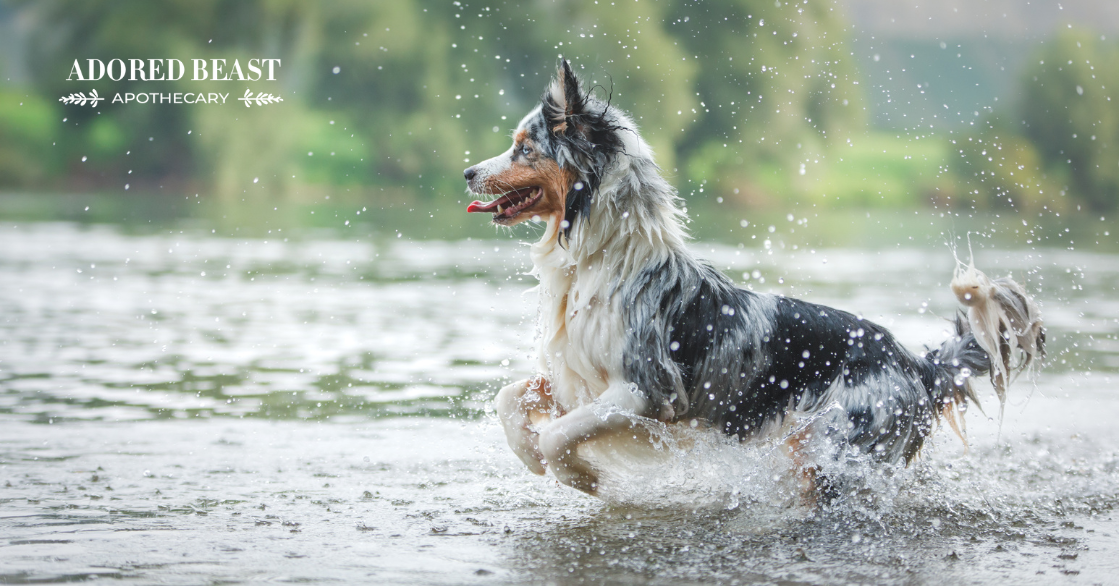Over the last few weeks, we’ve been hearing a lot about the mysterious respiratory illness in dogs that seems to be working its way across the United States.
So far, known cases have been identified in several states, with hundreds of dogs showing symptoms from mild to severe.
Obviously this has raised concerns among pet owners and veterinarians alike. Like everyone in the animal community, we’re keeping an eye on the situation. And we all want to do what we can to protect and support our beloved beasts!
So, in this blog, we’ll explore what experts are saying about it, symptoms to watch for, and give you some tips on keeping your dog safe.
The Mystery Respiratory Illness in Dogs: What Experts Are Saying
What do we know so far? A little more each day, thankfully.
Experts across the United Sates (and around the world), are actively investigating the illness. While veterinarians and researchers are not clear on the exact cause, there is some speculation.
According to the New York Times, a senior veterinary pathologist at the New Hampshire Veterinary Diagnostic Laboratory of the University of New Hampshire, Dr. David Needle, believes the illness is caused by a bacteria, based on what he had seen in his area.
“These just-discovered bacteria are ‘new as a potential cause of disease, but it is likely to be — or to have evolved from — a component of the dog microbiome’,” Needle added. He notes that its small size might allow it to evade a dog’s immune defences in the upper respiratory tract and get down into the lungs.
That said, some veterinarians hypothesize that it could be viral, rather than bacterial. This is because the dogs they have treated have not responded to antibiotics.
So, experts are not 100% sure what’s causing the symptoms, but collaborative effort among veterinarians, researchers, and public health officials to determine its origin, transmission, and optimal treatment approaches continue. And stay tuned – we will continue to update you as we learn more.
What to Watch For
So far, the symptoms of the mystery respiratory illness in dogs are similar to other respiratory illnesses, such as kennel cough.
Keep an eye out for the following:
- Coughing: Persistent or severe coughing, especially if it becomes progressively worse.
- Sneezing and Nasal Discharge: Frequent sneezing and discharge from the nose.
- Difficulty Breathing: Laboured or rapid breathing, wheezing, or shortness of breath.
- Lethargy: Unexplained fatigue, weakness, or a lack of interest in usual activities.
- Loss of Appetite: Significant changes in eating habits or a reluctance to eat.
- Fever: Elevated body temperature, as indicated by warm ears, nose, or excessive panting.
- Eye Discharge: Unusual discharge from the eyes, redness, or squinting.
How to Protect and Support Your Pup
First of all, let’s remember that stress can be harmful to our health (our pets’ and our own)! Knowledge is power, and when we know more, we are better equipped to deal with our animals’ unique needs. We can be proactive without getting stressed out!
And please remember, while we all want our animals to be safe, staying in a bubble and avoiding life is not the answer. Our dogs still need to live, to get out in nature, to be dogs! Make decisions that work for you and your animal, based on how you live your life together. Here are some of our suggestions for getting ahead of this mystery respiratory illness in dogs.
1. Making Smart Choices
We can make a few subtle changes in our day-to-day that help protect our animals:
- Learn what the risks are in your area. So far, reports of the illness have been seen in 14 states: California, Colorado, Florida, Georgia, Idaho, Illinois, Indiana, Maryland, Massachusetts, New Hampshire, Oregon, Rhode island, Vermont, and Washington. As of right now, no reports have been seen in Canada. While it may move to other states and countries, it can be helpful to know where it is the most prolific. Cater your lifestyle changes to meet the level of risk, if you can.
- If you’re concerned, avoid popular areas. Just as with kennel cough outbreaks, for example, avoiding areas that have many dogs may be a good idea. Instead of heading to the dog park, head to a trail, walk the neighbourhood, go to the park – any area that is a little less populated works! The same goes for group/pack walks or even daycare. If you’re worried about the risk in your area, perhaps limit pack walks or daycare with numerous dogs for the time being.
- Avoid contact with dogs showing symptoms. This may seem like an obvious tip, but we feel it’s important to talk about it anyway. If you know your pup’s best friend has a cough, perhaps postpone their playdate until they’re feeling better. The same goes for your pup. If they’re not feeling their best, try not to take them out with other pups to help limit the spread.
2. Support the Immune System
There are also many things we can do to support our animals, specifically their immune systems:
- Medicinal mushrooms – turkey tail, chaga, reishi, mitake – these are all immune modulating mushrooms, meaning they help to regulate the immune system. They enhance the immune system by supporting the body’s cells, helping create a resistance to viruses. The triterpenes stimulate the immune system, produce macrophages and help regulate productive immune cells.
- Pre and probiotics – you had to know this would be on the list! If as much as 80% of the immune system is in the gut, it only makes sense to support the gut! Add some pre and probiotic foods to your animal’s bowl, or find a supplement that contains both. If you feed probiotics regularly, consider rotating through different quality supplements (for example, switch from Love Bugs to Fido’s Flora to Gut Soothe…).
- Omega 3s – omega 3 fatty acids can help support the immune system by strengthening the cell walls, including the membranes of the immune cells. This includes a type of white blood cell called a macrophage, which plays a key role in eliminating pathogens from the body. They can also support the skin, which can become dry over the winter months.
- Antioxidants – antioxidants destroy free radicals that can build up in the body, thereby protecting the structural integrity of cells and tissues. This can significantly improve certain immune responses. They also defend against oxidative stress, which is like rusting in the body. It’s sort of like car rusting. And that’s not good. Our go-to is Phyto Synergy. It has high, high levels of Superoxide Dismutase – the King of Antioxidants!
3. Support the Respiratory System
Then, of course, there are certain things we can do to support the lungs and the entire respiratory system:
- Remove irritants from your animal’s environment. There are many things that can irritate the lungs and the entire respiratory system, so you want to eliminate these as much as possible. Consider moving to natural cleaners in your home, avoid the use of air fresheners, fabric sprays, or scented candles, and consider an air filter inside to help cleanse the air of potential irritants.
- Several different herbs are helpful for supporting respiratory health. Many have an affinity for the lungs and respiratory system! These include marshmallow root, slippery elm, licorice root, and mullein.
- Feed for health. Omega 3s, vitamin C, organ meat (lung), pears, eggs, pumpkin, and manuka honey can all be helpful for supporting the respiratory system.
As we learn more about this mystery respiratory illness in dogs, we will keep you posted. For now, know that there’s no need to panic, and there is a lot that you can do to keep your animal safe! Be proactive in supporting the body to be better prepared to fight off any threats, and keep giving your dog all the love they need to feel secure while you navigate this journey together.












